Can reflecting on the past help to design a better future?
How can we promote a culture of diversity and inclusion in the workplace? With her “Beyond Bias” training group, Ilana McCorquodale from the Sydney Jewish Museum uses history as a gateway to teach and inspire.
I am fortunate to work with a special group of people who volunteer their time, and share their memories, in the hope that the atrocities they experienced are not visited on future generations. Imbued with a spirit of philanthropy, these courageous individuals recount their suffering to warn us about the dangers of discrimination and marginalization.
They are survivors of the Holocaust, whose stories are an account of a world where racial and religious vilifications were encouraged rather than condemned.
By hearing their testimonies, audiences are confronted with the stark danger of practicing and overlooking biased thinking or behaviors. Segregation, exclusion and discrimination are revealed as essentially human traits, which must be guarded against with awareness and understanding.
I have witnessed the deeply emotional transformation that occurs when the first-hand-accounts of survivors bring about a new insight into personal and professional responsibilities we have as leaders today
The notions of equality, diversity and inclusion are increasingly being advanced by today’s corporations. Australia’s population is one of the most culturally and linguistically diverse in the world. Our labour force growth is increasingly coming from immigration. And more than 75% of Australians identified with an ancestry other than Australian in the 2011 Census. Agencies which ignore these issues face reputational as focus shifts to attracting and retaining a diverse workforce.
Indeed, a 2012 study by Deloitte and the Victorian Equal Opportunity and Human Rights Commission found that: ‘Business performance improved when employees felt highly included and thought their workplace was strongly committed to supporting diversity’.
Soon, through the newly formed training group ‘Beyond Bias’, I will be promoting the transformative experience of survivor engagement among members of the corporate and professional communities.
Corporate success is dependent on an empowered and informed workplace. For companies wishing to develop a culture of inclusion and diversity, this is a study of a world that ignored the plight of the weak and disregarded the framework of ethics and morality. Although our competence is primarily in the area of racial discrimination, the programs also highlight the necessity for equality in all respects: gender, sexual orientation, racial discrimination, age and disabilities.
In each workshop, diversity facilitators and educators will work alongside survivors, facilitating conversation and using history as a gateway to teach and inspire about crucial occupational issues such as:
- Institutional racism and unconscious bias
- Social and cultural prejudices
- Responsible leadership
- Ethical business practice
- and personal resilience
Australia has a diverse culture, and I strongly believe that our country has a successful model for meritocracy – maybe even the best on the planet. This is the core premise of ‘Beyond Bias’ – to remain active and accountable and always strive for a culture of acceptance.
To find out more details about Beyond Bias and the programs offered, contact me on 0403 337 700 or imccorquodale@sjm.com.au.
Ilana McCorquodale leads the Professional Program in the Sydney Jewish Museum and has been coordinating professional-development workshops for corporate and government clients since 2014. As a child of a Holocaust Survivor, her driving passion is to harness the power of this history and use it as a gateway for learning; not only as a warning about the dangers of discrimination and marginalization, but also as an inspiration about humanity’s capacity for heroism and resilience. Her current project ‘Beyond Bias, creating cultures of acceptance’ incorporates narratives from other groups who have been victimized to provide a comprehensive workshop to promote a culture of diversity and inclusion in the workplace.








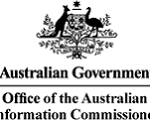
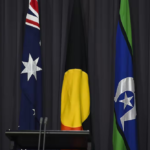

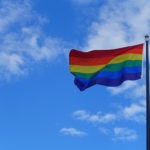
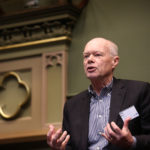
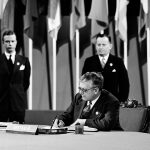

Cheryl McDonnell
May 25, 2016 at 8:23 am
To create & promote a diverse and inclusive culture benefits all
Ilana, Thank you for your thought-provoking blog on reflecting on the past to make a better future. With an interest in social justice and where that intersects for various groups in our society I am reminded over and over how the things that truly benefit one group, indeed benefit all of society by creating a better culture for us all. Promoting a diverse and inclusive culture across society means promoting the full diversity of humanity and including people with various levels of ability, from various backgrounds, and with various beliefs. It also means reflecting on the various past of all people and groups of people to better understand what it is that we need to do to safeguard against replaying horrors of the past. People with disabilities have been marginalised, and continue to be marginalised in Australian society, and where this marginalisation intersects with gender, sexuality, and diverse cultural backgrounds we find discrimination justified with biased narratives that have been accepted as truths without question by much of society until very recent times. Hence the call from many activists and advocates for the government to hold a Royal Commission into the abuse, neglect and violence against people with disabilities so that we can closely examine the horrors of the past and take action to prevent it being repeated. It is among the population of people with disabilities that I have found incredible levels of resilience and it is also among the population of people with disabilities that we find the highest rates of unemployment. It would be great to see workshops for employers that focus on the employment of people with disabilities.
Ilana McCorquodale
June 1, 2016 at 6:15 am
Hi Cheryl,The purpose of
Hi Cheryl, The purpose of Beyond Bias is to create corporate workshops highlighting the benefits of a more diverse workplace. There are many examples in history that can be used as a gateway to understanding how the disabled population have been marginalised and mistreated. Thank you for sharing your thoughts – it was interesting to hear your perspective.